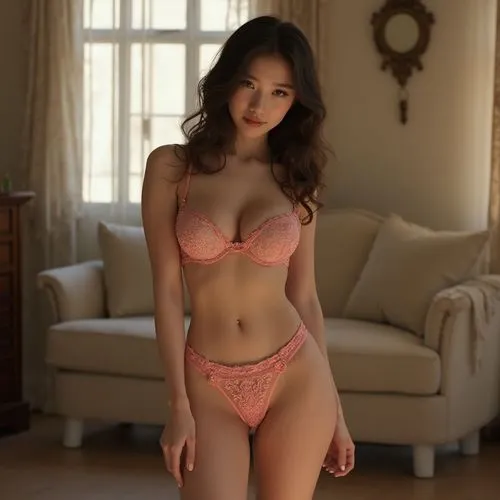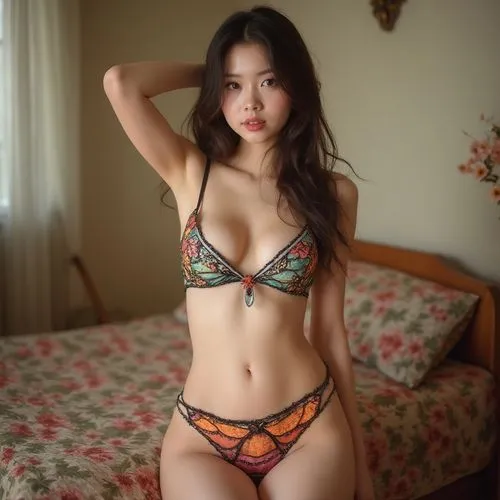
Ethnographic Snapshot: Where Kyabakura Fit in Japan’s Nightlife
Modern Japanese nightlife organizes intimacy and leisure by venue type—each with codified rooms, timing, and behavior.
A Pinsaro (Pink Salon) is a compact booth lounge with short, time-boxed sessions that include drink service and oral sex (oral sex) as a standardized performance within regulation. A Soapland uses private rooms where bathing rituals and body-to-body interaction unfold as a choreographed sequence. Image Clubs stage costume role-play; Sexy Cabarets center on close seating and light tactile proximity; Delivery Health operates in external spaces like hotels. In contrast, a Kyabakura (キャバクラ / cabaret club) is a talk-forward salon: a table or counter where hostesses manage conversation, pour drinks, and set a relaxed rhythm for the night. The intimacy is social and performative—bottle culture, toasts, light games—rather than private. Its systems (time sets, nomination, extensions, bottle-keep, service %) standardize expectations for urban users in their 20s–50s and for international visitors.
Explore more on SoapEmpire: Tokyo Red Light District Guide / Tokyo Soapland Guide / Japan Nightlife Home
1. What exactly is a kyabakura (and what it isn’t)?

Answer Box: A Japanese kyabakura is a lounge where you purchase time to be hosted—conversation, pouring drinks, light games, and attentive service. It is not a private-contact venue. Think of it as a curated, talk-forward bar with a transparent time-and-fee system listed on each club’s official page.
1.1 Core elements
- Set (60 min): base time at your table or counter.
- Nomination (指名): choose a specific hostess (optional but common).
- Extension (延長): add 30-minute blocks after your set.
- Service charge + tax: % added at checkout (published on sites).
- Bottle-keep: keep a bottle on-site for next visits.
1.2 Room style & hours
Rooms range from softly lit lounges to glamorous VIP salons. Many publish full systems online; for example, a Shinjuku club details time bands, nomination, and service % on its System page: Store Official Website.
1.3 Adults-only
Kyabakura are adult venues. Hours typically start around 19:00–20:00; last entry varies. Confirm details on each club’s official site.
2. Where to go in Tokyo—and how formats differ by district

Answer Box: First-timers should target Shinjuku (Kabukichō) for transparent time bands, Roppongi for international lounges, and Ikebukuro for value tiers. Always use the official page to verify today’s hours and service %.
2.1 Shinjuku / Kabukichō (biggest selection)
Kabukichō has the widest range—from entry to premium—with clear System pages and “time band” pricing. Example: Store Official Website.
2.2 Roppongi (international lounges)
Roppongi emphasizes glossy interiors and English-friendly ambience. Example group pages show rate cards with set/nomination/service %: Store Official Website and a premium lounge with published fees: Store Official Website.
2.3 Ikebukuro & Ueno (value-friendly)
These areas often post straightforward sets and promotions on their official pages; compare against Shinjuku/Roppongi to match your budget.
3. Prices decoded: set, nomination, extension, service charge

Answer Box: Conclusion → Numbers → Source: Central-Tokyo set (60 min) commonly ranges ¥6,600–¥14,000 depending on district and grade. Shinjuku examples show ¥6,600–¥11,000 by time band (Store Official Website). Roppongi lounges publish ¥10,000–¥14,000 sets with 30% service (Store Official Website). Premium salons post ¥15,000/60m plus nomination and 30%+10% (Store Official Website).
3.1 Line items you’ll see
- Set: base 60 minutes; some clubs do 45/90-minute variants.
- Nomination: typically ¥2,000–¥3,300 (hourly or per stay).
- Extension: roughly ¥3,000–¥7,500 / 30 min, depending on grade.
- Service % + tax: commonly 25–35% + 10% tax; check the exact % on the page.
- VIP room: optional room charge per 60 minutes in high-end venues.
3.2 Tokyo examples (verify live numbers on official pages)
- Shinjuku system with time bands and auto-extension notes: Store Official Website.
- Roppongi lounge with set/nomination/service % posted: Store Official Website.
- Premium Roppongi salon with detailed fees: Store Official Website.
3.3 Kyabakura Starter Comparison (Tokyo Examples)
| Area | Club | Set (60m) | Nomination | Extension | Service/Tax | Official Link |
|---|---|---|---|---|---|---|
| Shinjuku (Kabukichō) | Club Ranmaru | ¥6,600–¥11,000 (by time) | ¥2,750–¥3,300 | ¥4,950 / 30m (auto) | Service 25% (VIP 35%) | Store Official Website |
| Roppongi | CLUB RIO | ¥10,000–¥14,000 (by time) | ¥3,000 | ¥7,000 / 30m | Service 30% | Store Official Website |
| Roppongi (premium) | LIRIC TOKYO | ¥15,000 | ¥3,000 / h | ¥7,500 / 30m | Service 30% + Tax 10% | Store Official Website |
These are examples from each club’s official page; always check the current page before visiting.
4. How to visit: booking, check-in, bottle-keep

Answer Box: Reserve on weekends or for VIP rooms, arrive on time, confirm your set, nomination, extension, and service % before ordering bottles, and consider bottle-keep if you plan repeat visits.
4.1 Booking channels
Clubs post phone numbers and maps on their official pages—e.g., Store Official Website, Store Official Website, Store Official Website. For groups or VIP rooms, call ahead.
4.2 Check-in flow (typical)
- Reception confirms your set length, time band, and nomination choice.
- You’re seated; one or more hostesses greet you. If undecided, you can meet several before nominating.
- Drinks arrive; staff manage ice and mixers. Pace is relaxed.
- At the hour mark, choose to extend, change hostess, start a bottle-keep, or settle the bill.
4.3 Bottle-keep & receipts
Your bottle is labeled and stored; the receipt itemizes set, nomination, extensions, bottles, service %, and tax. If you travel again, the bottle can be resumed (ask about storage period and conditions).
5. Etiquette, phrases, and a sample route

Answer Box: Dress smart-casual, be polite, state your plan/budget upfront, and confirm fees before ordering bottles. Kyabakura are social lounges, not private-contact venues. Enjoy conversation, toasts, and the ritual of hospitality.
5.1 Simple etiquette
- Ask about seat/set, nomination, extension, and service % at the start.
- Toast responsibly; follow staff guidance on photos and posting.
- Be clear about time—say if you must catch the last train.
5.2 Useful phrases (plain & polite)
- “Setto wa 60-fun desu ka?” — Is the set 60 minutes?
- “Shimei-ryō wa ikura desu ka?” — How much is the nomination fee?
- “Enchō 30-pun wa ikura desu ka?” — How much is a 30-minute extension?
- “Sabisu-ryō to zeikin wa nan-pāsento desu ka?” — What are the service and tax %?
- “Botoru-kiipu dekimasu ka?” — Can I keep a bottle?
5.3 A simple Tokyo route (first-timers)
Start with dinner near Shinjuku East Exit, then a 60-minute set at a Kabukichō club (system posted: Store Official Website). If you prefer a glossy finish, move to Roppongi for a late lounge session (Store Official Website or Store Official Website).
6. Summary and next steps

Answer Box: Japanese kyabakura are conversation-driven lounges with standardized pricing. Pick your district (Shinjuku/Roppongi/Ikebukuro), match a set/nomination/extension to your budget, and confirm the service % on the official page. Use the comparison table above to shortlist and call ahead for VIP seating.
6.1 One-minute checklist
- Choose Shinjuku (variety), Roppongi (international), or Ikebukuro (value).
- Confirm set, nomination, extension, service/tax on the club’s site.
- Decide on bottle-keep if you’ll return.
6.2 Shortlist (official links)
Club Ranmaru (Shinjuku) / CLUB RIO (Roppongi) / LIRIC TOKYO (Roppongi)
Why Use SoapEmpire for Japanese Kyabakura
If you searched for “japanese kyabakura,” you probably opened a dozen tabs and still wondered: What does the set include? Do I have to nominate someone? How much is a 30-minute extension? And what’s the real total after service and tax? The information exists, but it’s scattered across individual System pages—hard to compare when you’re planning a night in Tokyo.
SoapEmpire turns that confusion into a checklist you can trust. We translate the format into plain English—set (usually 60 minutes), nomination (optional; hourly or per stay), extension (per 30 minutes), and venue-wide service + tax—and we link you straight to each club’s official page so you can verify today’s numbers. Because many readers land here searching “japanese kyabakura,” our picks focus on districts that make sense for visitors: Kabukichō for variety, Roppongi for international lounges, and Ikebukuro for value.
Our advantage is structure. We compress what matters—nearest station exits, time-band pricing, whether auto-extension applies, and the presence of VIP rooms—into a one-screen summary. We also include practical details you’ll use at the table: how to ask about service percentages, when to start a bottle-keep, and what to say if you need to catch the last train. This takes the anxiety out of your first visit and lets you enjoy the real appeal of kyabakura: curated conversation, easy toasts, and a calm pace in a comfortable room.
Want concierge help? SoapEmpire offers 24-hour booking support for only $10. Tell us your district (Shinjuku / Roppongi / Ikebukuro), preferred time window, budget range, and whether you plan to nominate or request a VIP table. We’ll contact the venue in Japanese, confirm the exact system and charges, and send back a clean English confirmation with directions and any house rules. For reservations or inquiries, please contact us via the inquiry form.
If you’re interested in visiting any of these places, SoapEmpire offers a 24-hour booking support service for only $10.
Just send the store name, preferred time, and your name (nickname is fine) to: takuma@skylinks-inc.com.
We’ll take care of your reservation quickly and smoothly.
FAQ: Japanese Kyabakura
Q1. How much should I budget for a first visit?
A. As a planning band, central-Tokyo sets span ¥6,600–¥14,000 by district/grade. Nomination is often ¥2,000–¥3,300; extensions run about ¥3,000–¥7,500 / 30 min. Add the posted service % and tax shown on the club’s official page (see links above).
Q2. Do I have to nominate a hostess?
A. No. You can start without a nomination and decide later. If you nominate, a fee applies (sometimes hourly); staff will explain your options.
Q3. Can I pay by card?
A. Most kyabakura accept major cards. The service % and tax are added at checkout and are published on the club’s site.
Q4. Are kyabakura the same as hostess clubs?
A. Closely related—both are conversation-based lounges. “Kyabakura” is typically a more casual, time-banded format compared to some traditional Ginza “clubs,” which emphasize bottle-keep and long-term relationships.
Q5. Is there any dress code?
A. Smart-casual works well (collared shirts, clean sneakers/fashion shoes). If you’re unsure, check the club’s page or call ahead.